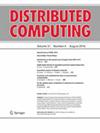ENHANCEMENT OF DIGITAL BASED BATIK CRAFT PRODUCTS IN KEREK DISTRICT, TUBAN DISTRICT
IF 1.3
4区 计算机科学
Q3 COMPUTER SCIENCE, THEORY & METHODS
引用次数: 1
Abstract
Background: Gedog batik weaving in Kerek District to become one of the regional superior products that started local development. The MEA era and the industrial revolution 4.0 provide challenges for these creative economies to survive amid increasingly fierce global competition. One of them is by comparison with the shift of consumer tastes. UMKM are those who become Gedog batik weavers who do not understand customer satisfaction at present, which emphasizes the value of goods purchased according to the value used first. UMKM also specializes in mastering digital technology as a marketing medium. Purpose: For this reason, community adoption activities for training and mentoring for batik UMKM participants in making branding to respond to customer convenience and increasing marketing of digital-based products for solutions that support partnerships. Methods: Community service methods are carried out by providing training and practicum on product branding and digital-based marketing for business entrepreneurs or batik artisans. Results: The result of these activity participants who initially did not understand the transition of consumers became aware of the need to do the branding of a digital-based product and marketing. Conclusion: Partners get increased knowledge and skills in digital-based batik marketing to respond to shifting consumer tastes.在克莱克区、图巴区加强数字化蜡染工艺产品
背景:格多格蜡染织造在克雷克区成为区域优势产品之一,开始了当地的发展。多边环境协定时代和工业革命4.0为这些创意经济体在日益激烈的全球竞争中生存提供了挑战。其中之一是与消费者口味的转变相比。UMKM是那些成为Gedog蜡染编织者的人,他们目前不了解客户满意度,客户满意度强调根据首先使用的价值购买商品的价值。UMKM还专门掌握数字技术作为营销媒介。目的:出于这个原因,社区采用活动为蜡染UMKM参与者提供培训和指导,帮助他们打造品牌以满足客户的便利,并增加基于数字的产品营销,以支持合作伙伴关系。方法:通过为商业企业家或蜡染工匠提供产品品牌和数字营销方面的培训和实践,实施社区服务方法。结果:这些活动的参与者最初不了解消费者的转变,他们意识到有必要对基于数字的产品和营销进行品牌推广。结论:合作伙伴在基于数字的蜡染营销方面获得了更多的知识和技能,以应对不断变化的消费者口味。
本文章由计算机程序翻译,如有差异,请以英文原文为准。
求助全文
约1分钟内获得全文
求助全文
来源期刊

Distributed Computing
工程技术-计算机:理论方法
CiteScore
3.20
自引率
0.00%
发文量
24
审稿时长
>12 weeks
期刊介绍:
The international journal Distributed Computing provides a forum for original and significant contributions to the theory, design, specification and implementation of distributed systems.
Topics covered by the journal include but are not limited to:
design and analysis of distributed algorithms;
multiprocessor and multi-core architectures and algorithms;
synchronization protocols and concurrent programming;
distributed operating systems and middleware;
fault-tolerance, reliability and availability;
architectures and protocols for communication networks and peer-to-peer systems;
security in distributed computing, cryptographic protocols;
mobile, sensor, and ad hoc networks;
internet applications;
concurrency theory;
specification, semantics, verification, and testing of distributed systems.
In general, only original papers will be considered. By virtue of submitting a manuscript to the journal, the authors attest that it has not been published or submitted simultaneously for publication elsewhere. However, papers previously presented in conference proceedings may be submitted in enhanced form. If a paper has appeared previously, in any form, the authors must clearly indicate this and provide an account of the differences between the previously appeared form and the submission.
 求助内容:
求助内容: 应助结果提醒方式:
应助结果提醒方式:


